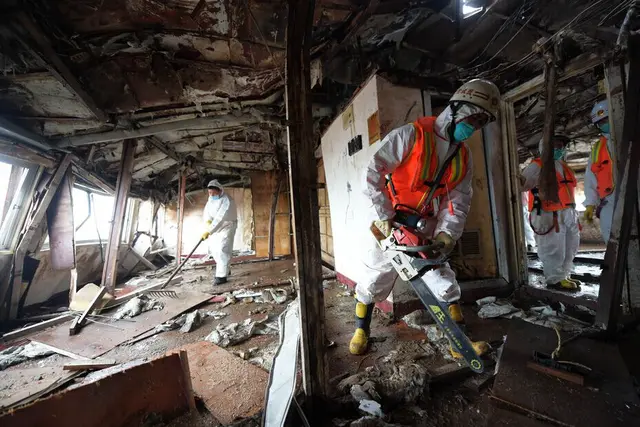Thai caretaker Prime Minister Yingluck Shinawatra expressed satisfaction after the general election concluded on Sunday with no injuries reported and voting in the majority of constituencies completed.
But political observers believe it is still early to claim victory as the likelihood of the election results being nullified for legal reasons cannot be ruled out.
Caretaker Labor Minister Chalerm Yoobamrung predicted the Pheu Thai Party, headed by Yingluck, would win 265-280 seats of the total 500 seats in the House of Representatives, while other small political parties expect to seize only a few or tens of seats.
This is a justified speculation given the extensive and firm grassroots support the Pheu Thai Party enjoys, especially in north and northeast Thailand.
However, the real hurdle the Pheu Thai has to leap over to reclaim ruling power is the constitutional provision that a minimum of 95 percent, or 475, of the 500 seats should be filled to validate the convening of the House.
Despite voting completed in 89 percent of more than 90,000 polling stations nationwide, 69 constituencies in 18 provinces failed to go through with the voting and thus will not be able to generate a Member of Parliament.
In 28 of the 69 constituencies, registration of constituency- based candidates did not happen in the first place due to disruption from anti-government protesters.
Under current circumstances, a maximum of 431 MPs can be elected, which is a far cry from the minimum requirement of 475.
The Election Commission (EC) is considering by-elections for around 12 million voters who failed to cast ballots in the Jan. 26 advance voting and Sunday's election.
The EC earlier decided to hold a new around of advance voting on Feb. 23. It is also considering candidate re-registrations in the 28 constituencies that lack candidates, according to EC chairman Supachai Somcharoen.
But giving the 12 million a second chance to exercise their voting rights may turn out to be risky as the constitution stipulates the general election should not be held in excess of a day so as to ensure fairness.
With no precedents to follow, holding by-elections may constitute grounds for invalidating poll results, Supachai said.
It is reported that some members of the Democrat Party, which boycotted the election, have filed petitions for the results to be declared void, citing that the voting did not take place on a single day.
Furthermore, low voter turnout is another problem to worry about. Many provinces, including those where voting proceeded with little, if any, disruption, have reported unusually low voter turnout.
It is reported that voter turnout in southern provinces, strongholds of the Democrat Party, was estimated to be 20-30 percent, substantially lower than in previous elections.
In addition, the number of "no-votes" was very high in many provinces.
The country's electoral law stipulates that in constituencies that have only one candidate, the candidate has to gain support from at least 20 percent of all registered voters to be elected. Otherwise, the seat for this constituency in the House will not be filled.
In this general election, 16 constituencies in nine provinces face "one-horse race." It remains to be seen whether MPs will be elected there.
The conclusion of the election will not naturally bring an end to months of street protests. Protest leader Suthep Thaugsuban has already threatened to sue Yingluck for wasting some 3.8 billion baht (117.7 million U.S. dollars) in holding an election that he called unsuccessful.
It is feared a new round of mass rally is probably being planned.
With problems left hanging, the fate of this general election is yet to be decided. Even if it proves to be valid, it can hardly be the cure for Thailand's political woe.
 简体中文
简体中文

